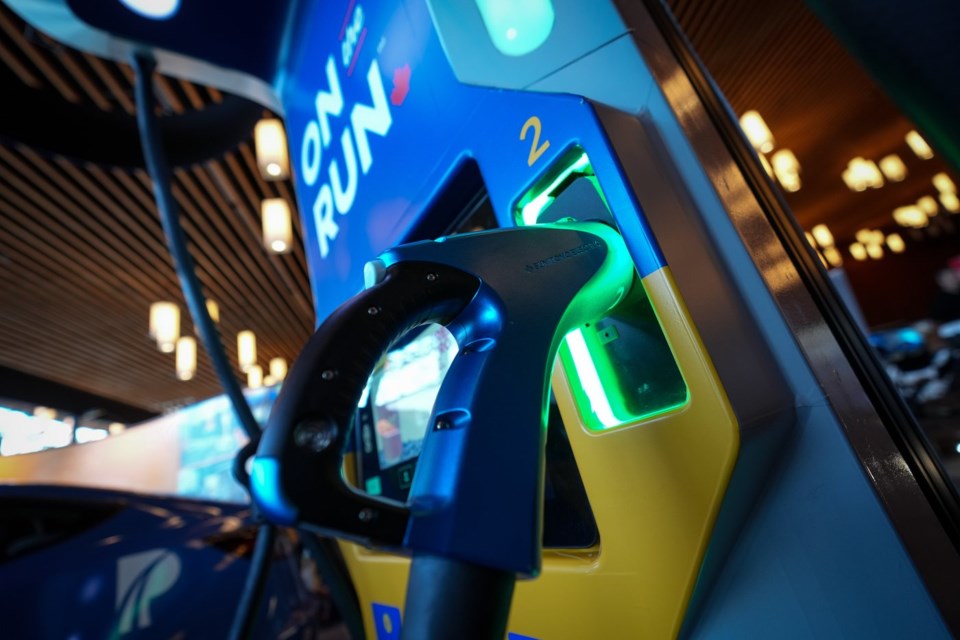OTTAWA — Canada continues to fall behind on efforts to build up a network of electric vehicle charging stations, even as the rising number of chargers along key corridors makes it easier for Canadians to take their EVs on longer trips, researchers say.
There are a little more than 35,000 charging stations across the country right now — well short of the 100,520 Canada needs to meet its policy goals for electric vehicles, researchers with the Montreal-based consultancy Dunsky Energy and Climate said in a report released last year.
In a 2021 analysis commissioned by Natural Resources Canada, Dunsky estimated Canada needed 52,000 chargers by this year. It revised that target in a report released in February 2024 to take into account the need for charging infrastructure for commercial fleets and secondary roads.
According to the most recent data from Natural Resources Canada, 88 per cent of Canada’s charging ports are in B.C., Ontario and Quebec — provinces which accounted for 92 per cent of new EV sales last year.
Jeff Turner, director of mobility at Dunsky Energy and Climate, said the shortage of stations is hardest on EV drivers who live in multi-unit residential buildings and may rely on on-street parking.
“The analysis that we did puts a pretty strong emphasis on the importance of an equitable transition to EVs," Turner said. "And so we put a big focus on the need to support folks who can't charge at home.”
The federal government issued a call for proposals for public and private EV charging stations last year and is expected to announce funding for those projects by January.
Turner said that funding should boost the number of charging stations after the summer construction season ends.
“We're sort of in a bit of a waiting period for the most recent funding to really start to have a big impact,” he said.
Turner said a growing number of charging locations along key highway corridors — particularly between Toronto and the Atlantic region — has made it easier for Canadians to take their EVs for longer trips.
“Folks really fixate on this idea of the road trip is the biggest barrier holding them back from switching to an EV,” said Turner, adding he drove from Montreal to Halifax twice last year in his EV.
“We're now at a point where most new EVs coming to the market can charge back up to 80 per cent in maybe 30 to 35 minutes. Some of the fastest-charging EVs could do that in under 20 minutes.”
Starting next year, Ottawa will require that 20 per cent of all new light-duty vehicles sold be zero-emission vehicles, which include gas-powered plug-in hybrids. That benchmark is set to climb annually to reach 100 per cent in 2035.
The federal government is under pressure to repeal that EV sales mandate. Automakers have argued they can't meet the sales target and would have to pull gas-powered vehicles off the market to achieve it — which would undermine domestic production.
Even if the government chooses to change or drop the mandate, Turner said, it wouldn't affect the need for more charging stations.
"No matter how many EVs are on the road, we still need an adequate spacing of charging stations so that people can make the trips that they want to and go to the places they want to and still expect to be able to find a charger without needing to make an inconvenient detour," he said.
"What does change is the volume of charging that needs to happen."
This report by The Canadian Press was first published July 9, 2025
Nick Murray, The Canadian Press




